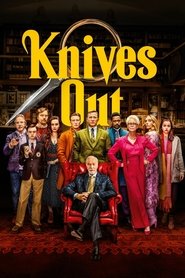Friends came over to watch a movie, picked several options from our collection, and settled on this. Not only had they not seen it, they’d never even heard of it. Wild!
One thing that I noticed this time, for the first time in my many viewings (this is my ninth time), is that the film works because of Ransom’s position in it (spoilers ahead).
For much of the second act of the film, he served as the audience’s perspective. When he curses out the family, he’s saying what we want to say to them all. When he’s “helping” Marta, he’s doing what we want to do as an audience. He reacts the way we do to the will reading — by cackling at the family. As soon as he laughs, so do we.
So it catches us off guard all the more when the Big Reveal happens and Ransom’s the bad guy, because we have associated his perspective and ours. So we’ve been duped by the story, and had the ground ripped out from under our stable perspective, making the ending feel much more visceral and impactful than it would otherwise.
I think the script is brilliant, but I’m also somewhat convinced that this sort of thing is often accidental genius. You can get good scripts, but subtle things like this are a combination of great performances, excellent direction, and a little bit of editing magic. I’m not sure you can plan for it all to work out so perfectly, but I’m always glad when it does.
